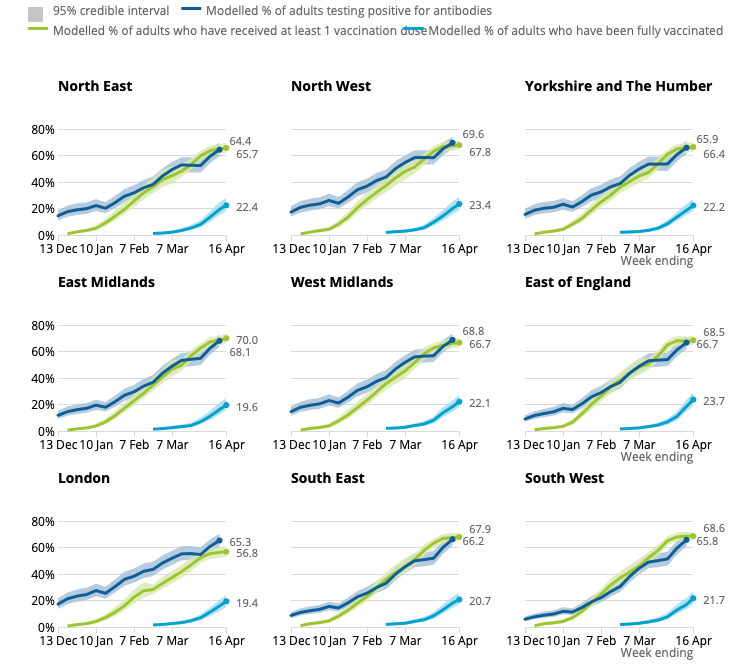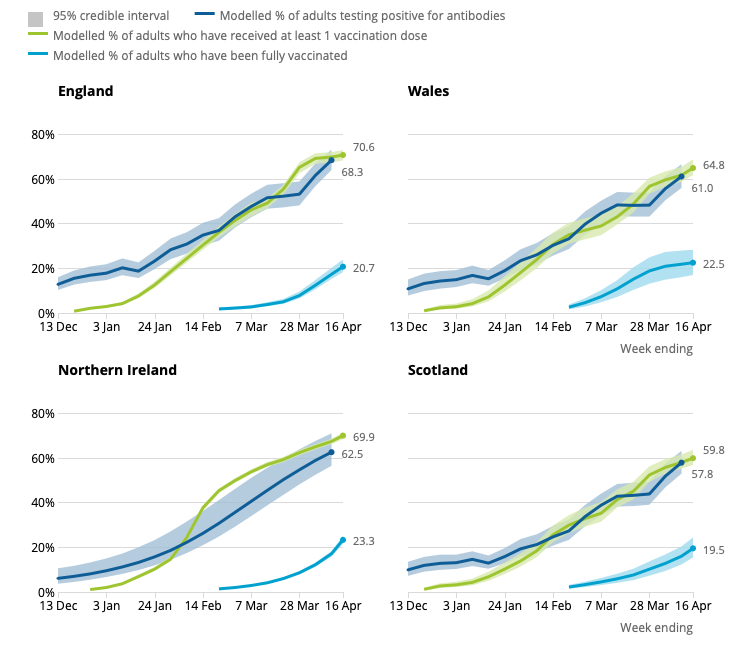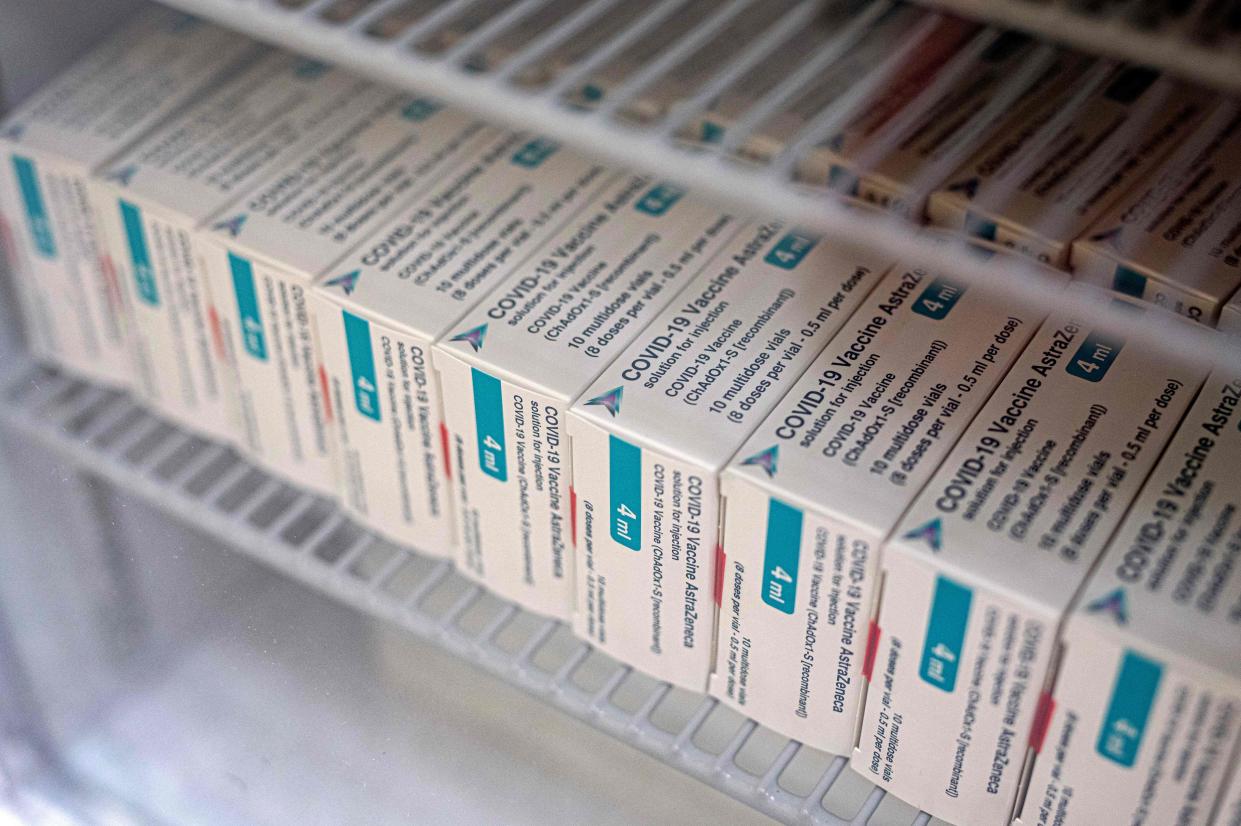The UK area where the most people have immunity to Covid
People in the north west of England are the most likely to test positive for Covid antibodies, newly-released figures suggest.
Following months of the coronavirus vaccine being rolled out across the the country, more than half of adults in the UK are now likely to have Covid-19 antibodies, according to the Office for National Statistics (ONS).
The latest estimates are based on a sample of blood test results for the week ending 11 April.

The figures show that the likelihood of antibody positivity in the north west of England is 69.6%, while the lowest figure is 64.4% in the north east.
Across the four nations of the UK, the antibody estimates range from 57.8% of adults in Scotland to 68.3% in England, with 61% for Wales and 62.5% for Northern Ireland.
The figures are a stark difference from the middle of December, when the antibody estimates for all four regions stood at less than 20%.
The ONS said that across all four nations there is a clear pattern between vaccination and testing positive for Covid antibodies – but the detection of antibodies alone is not a precise measure of the immunity protection given by vaccination.
With the government continuing its vaccination rollout, the figures will come as a positive sign that lockdown restrictions ending on 21 June will go ahead as planned.


The government has previously said it would only ease restrictions if cases and deaths continue to decline, easing up pressure on the NHS.
Elsewhere in the figures, the highest percentage of adults testing positive for antibodies in England in the week to 11 April was estimated to be the 70 to 74 age group (87.6%), followed by 80 and over (87.1%) and 60 to 64 (85.7%).
The lowest percentage was for 16 to 24-year-olds (46.5%).
In Wales, the highest proportion of adults likely to have tested positive for antibodies was the 70 to 74 age group (83.0%) followed by 65 to 69 (82.9%), while in Scotland the highest percentage was among 65 to 69-year-olds (85.1%), followed by 70 to 74-year-olds (81.4%).
In Northern Ireland, the ONS uses different age groups due to small sample sizes and estimates 82.0% of people aged 70 and over were likely to have tested positive for antibodies.
The presence of Covid antibodies implies someone has had the infection in the past or has been vaccinated.
It takes between two and three weeks after infection or vaccination for the body to make enough antibodies to fight the virus.
Antibodies then remain in the blood at low levels, although these levels can decline over time to the point that tests can no longer detect them.

Once infected or vaccinated, the length of time antibodies remain at detectable levels in the blood is not fully known.
It is also not yet known how having detectable antibodies, now or at some time in the past, affects the chance of getting Covid-19 again.
With nearly 34 million people having had at least one dose of the vaccine, it is thought antibodies have increased at speed along with the huge number of people being given the jab.
Over 47 million people across the UK have been vaccinated so far, with 42-year-olds the latest to be offered the jab.
The next stage of lockdown easing comes on 17 May, when most outdoor restrictions will come to an end, while hospitality will be able to open up for customers indoors.
Step four in the road map out of lockdown would see all legal limits on social contact removed on 21 June, meaning large gatherings would once again be permitted.


